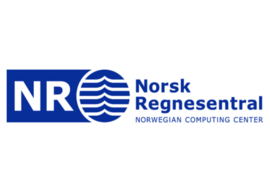Matilda Dorotic - Associate professor at BI Norwegian Business School
Speech: Future of smart city technologies and customer well-being
Sustainable smart city technologies (SCT) at heart are supposed to be about citizens, yet so far most of the discussions and developments in smart city domains were mainly focused on technology (i.e., how companies or governments can create good technical solutions). The implicit assumption is that citizens would understand the benefits and embrace SCT as a future. Popular press and consulting reports are positive and optimistic. However, we identified serious concerns in credibility of their "evidence". Typically, these studies ask a selected group of participants who are highly engaged with SCTs or who co-create SCTs, to evaluate their benefits and their attitudes towards its adoption and benefits, which leads to positivity bias. In a series of studies we test how citizens perceive different SCTs on different dimensions (i.e., safety, privacy concern, trust, safety, sustainability, usefulness). We found that in many instances consumers are highly skeptical, that they do not clearly value the benefits of SCTs, nor have trust in their beneficial implementation. This may have significant implications on the success of implementation of SCTs and undermine the main goals SCTs are supposed to achieve in terms of sustainability. we try to identify ways forward by looking at SCT impact on citizen wellbeing. The effect of SCTs on citizens’ well-being can be better understood by identifying the underlying psychological states and mechanisms that make people react in specific ways towards SCTs. This will help us to understand and predict citizens’ responses after the implementation of SCTs using virtual reality, text mining or ML algorithms like deep learning.
Researcher at BI My current research focuses on sustainability of smart city technology and the impact of those technologies on customer wellbeing with partners like Oslo Police, Oslo Kommune, Nordic Edge (smart city cluster of Innovation Norway), DOGA, NTNU, University of Agder (potentially also Simula Research Institute collaboration etc.) In the sphere of smart-city (IOT) research, I conducted both lab experiments to evaluate psychological impact on citizen perceptions as well as data analytical studies that evaluate causal impact using the empirical evidence. We are working towards the use of ML and AI to analyze multiple data sources to evaluate and predict how customers relate to technology, how SCT technologies change consumer attitudes and behavior and which KPIs should municipalities and firms use to evaluate the impact of smart technologies on citizens.




























